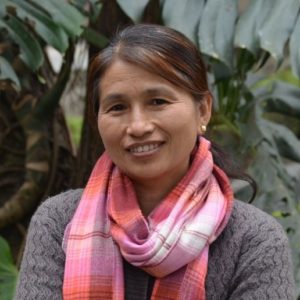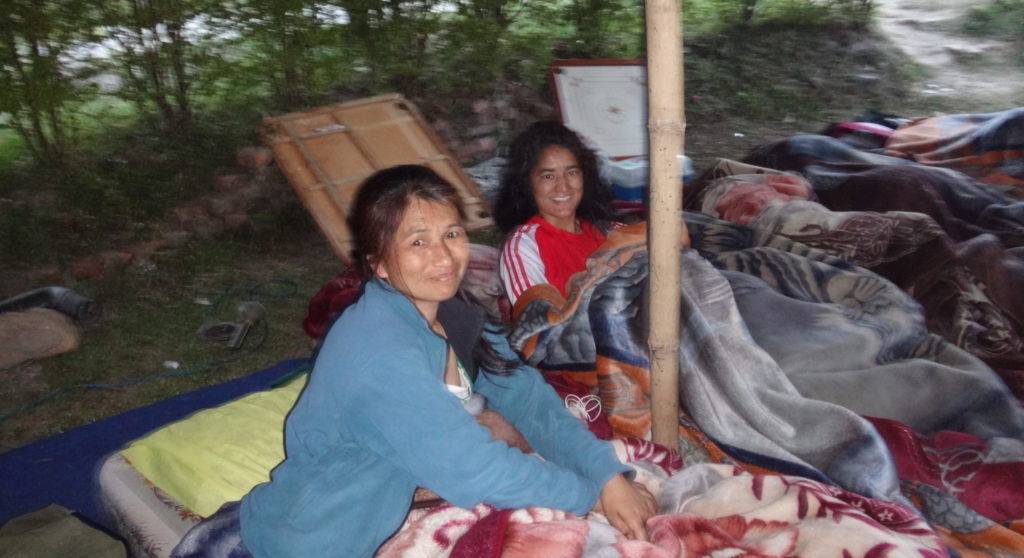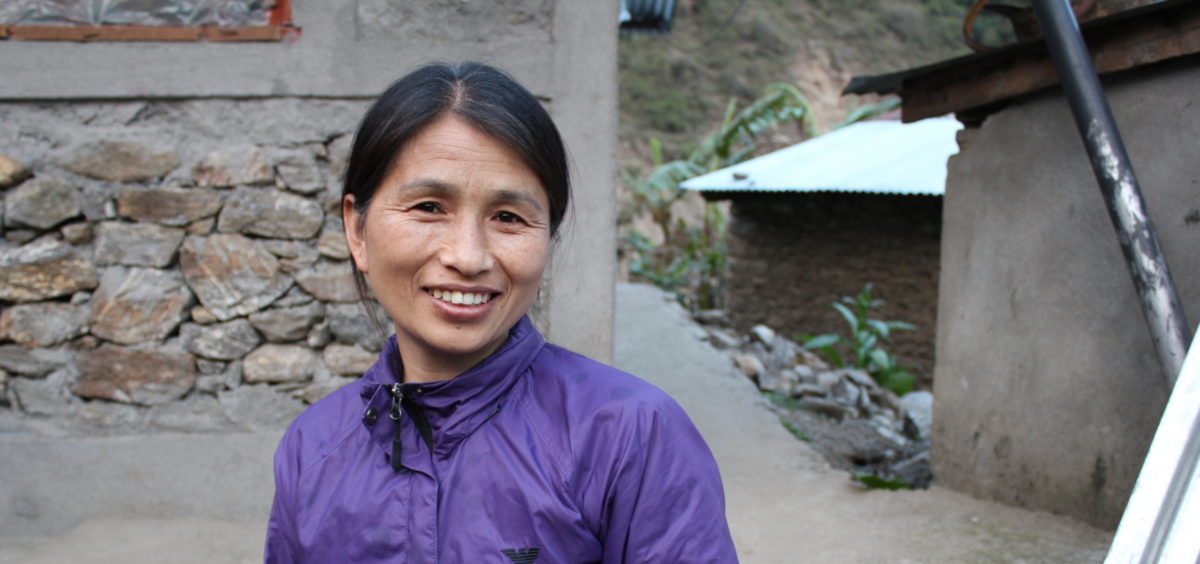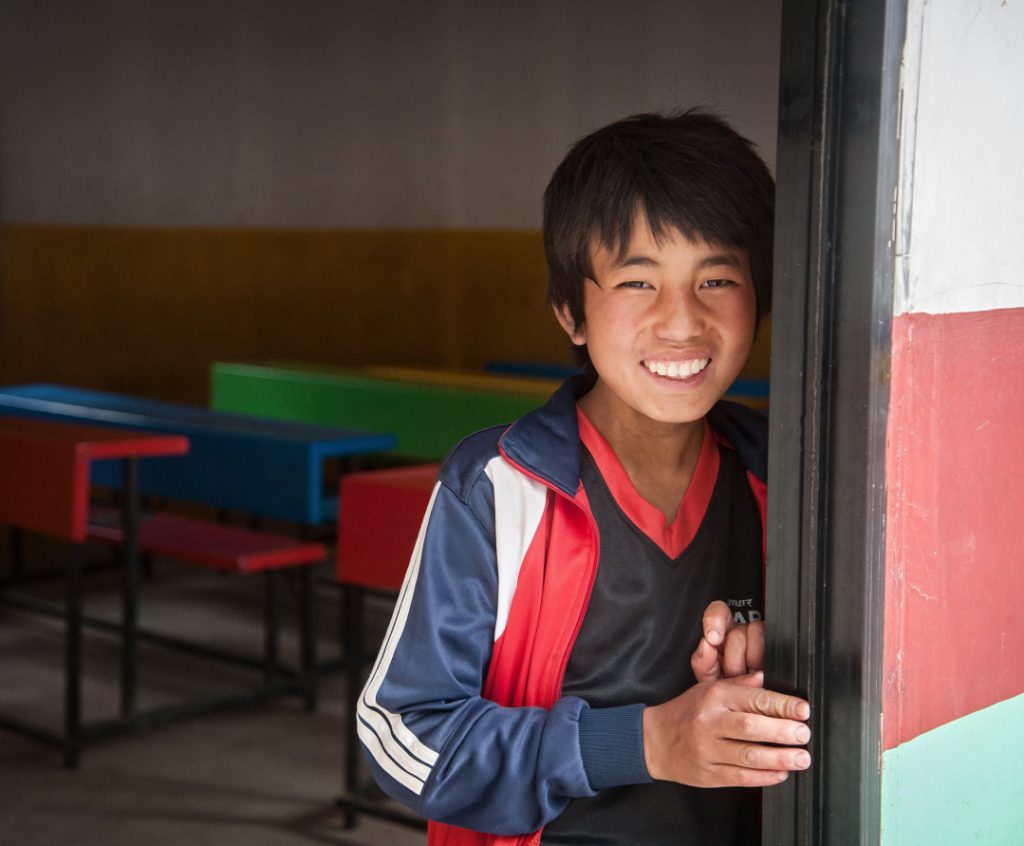In honour of International Women’s Day, we’re highlighting some of the amazing women at Adara who are advancing access to quality health and education services. They’re our leaders, our protectors, our friends and our hope. Today we’re highlighting Kumari Shrestha.
As women around the world continue to be silenced and as we face increasing polarity, conflict and division, we acknowledge the women stepping forward to make a difference for themselves and their communities. Together we can #BreakTheBias.
“Each day should be International Women’s Day,” Kumari Shrestha says. “Women are not treated equally in the community. Many women are facing household discrimination and violence every day. To provide rights and equality to women in every part of a village, city and country, Women’s Day is important.”
As Adara’s Office Cook in Kathmandu or ‘Didi’ (meaning older sister), Kumari is an integral member of the Adara team. She has occupied many roles in her fifteen years with Adara: carer, cook, teacher. But the one we hear about most? Protector.
This protective instinct was instilled in Kumari from early in life. Kumari moved to Kathmandu from six hours away at only 15 years old. Two years later she married and had two children.
“Life was going well,” Kumari Shrestha says. “But after 15 years of marriage, my husband died.”
Now a single mother, Kumari began working day and night to feed her son and daughter.
First, she spent eight years working in a factory. Later, her relative told her about Adara. He was caring for a group of children known as the Adara Kids and he thought Kumari would be a great fit for a similar role.

The Adara Kids are a group of 136 trafficked children who had been taken from their homes, mainly in Humla, and brought to Kathmandu during a period of political unrest in Nepal. When Adara first found these children, they were living in horrendous conditions in overcrowded homes or basements. After working with the Nepal Police and Central Child Welfare Board, we were granted custody. To ensure their immediate safety, we set up 10 residential homes and hired teams of social workers, educators and cooks to provide round-the-clock care. Kumari was one of the caretakers we hired.
“I treated all the Adara Kids like my own and looked after them for four years in a home,” Kumari explains.
She was their biggest champion, providing them with love and care, while also teaching them about respect, culture and growing up. Their protector first and foremost, she recalls the fierce sense of responsibility she felt for them when the devastating 2015 earthquake hit.
“I came to Adara office just two days after the earthquake,” Kumari says. “There was fear in my heart in each moment.”
Kumari had decided to care for the Adara Kids and assist with Adara’s crisis response work. With her own family out of harm’s way, she set off for the Adara office. She spent weeks sleeping outside, where it was safer, with the children.

After the earthquake, Kathmandu continued to be hit by aftershocks. During one particularly bad aftershock, Kumari jumped into action, seeing the children to safety outside. She felt like it would be her last day on earth.
Fortunately, she lived to tell the tale and thanks to her bravery – as well as that of the entire Adara team – no one was injured.
“After working for four years in Adara children’s homes, I was shifted to the Adara office to prepare meals and overlook the hygiene of the office,” Kumari says. “It’s my 11th year in office and I still love my job.”
Kumari says that interacting with the grown up Adara Kids is still the favourite part of her work: “The graduated Adara Kids still call me and thank me for caring for them.”
Our work with women and children across Nepal would not be possible without amazing, dedicated, fierce staff like Kumari.
And while Kumari has contributed to the wellbeing of countless individuals across Nepal, she believes there is still more that can be done.
“Women are not less than men and they can do anything that men can do” Kumari says. “We should always think positive and always do hard work to be independent and lead a happy life.”

